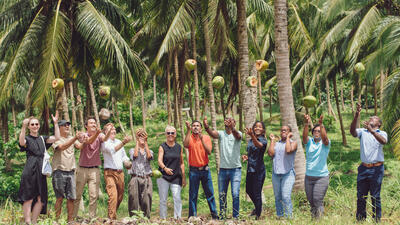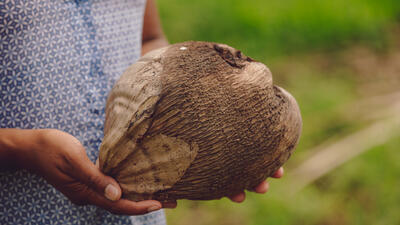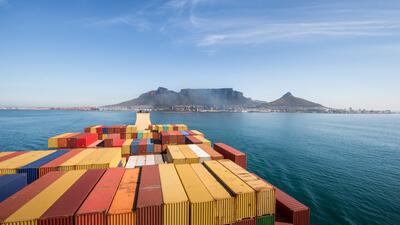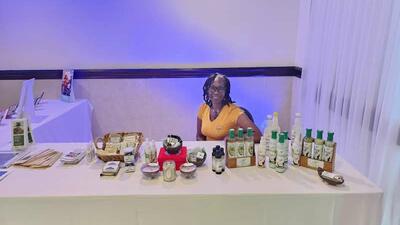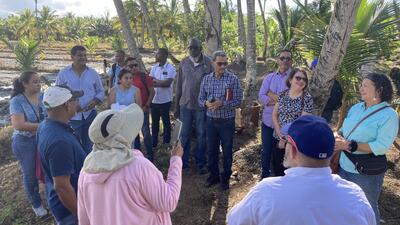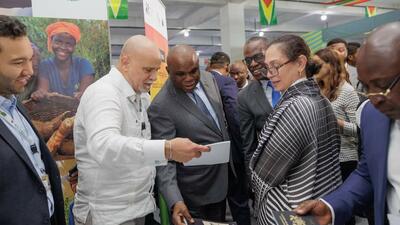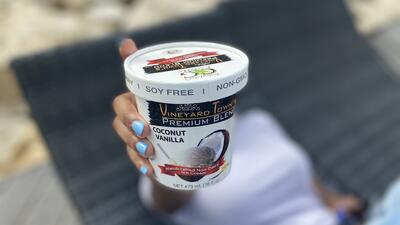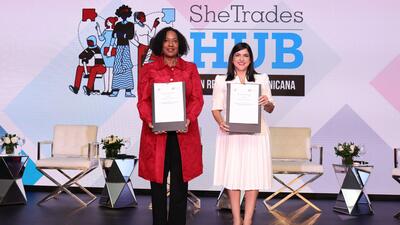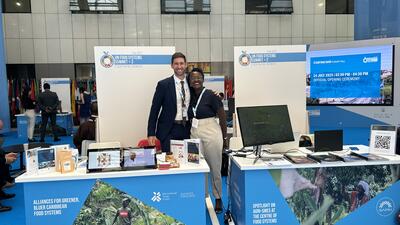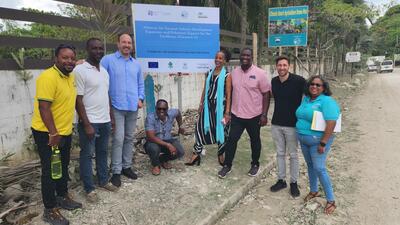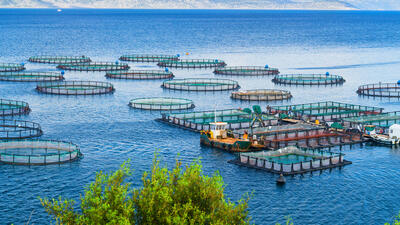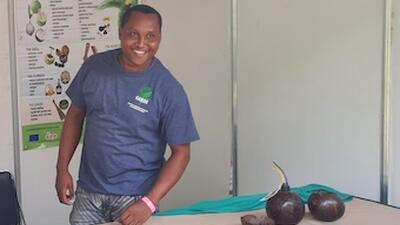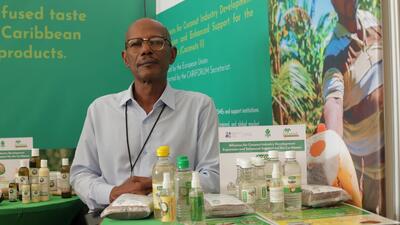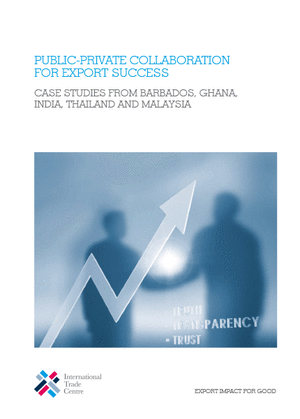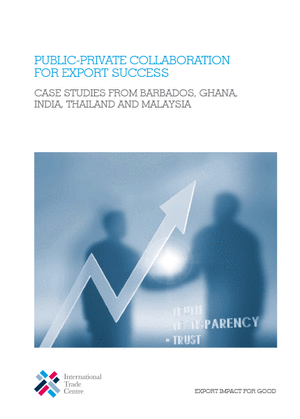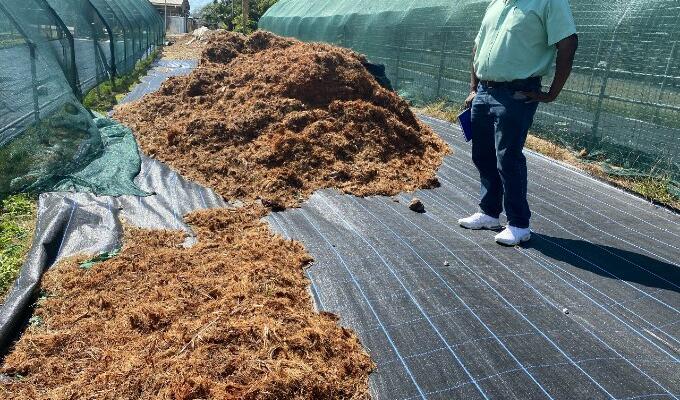
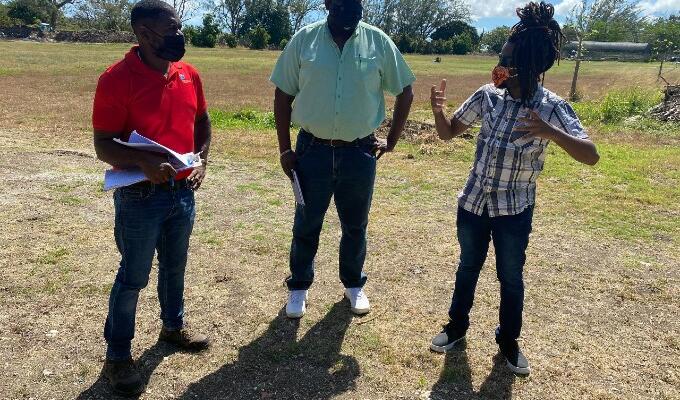
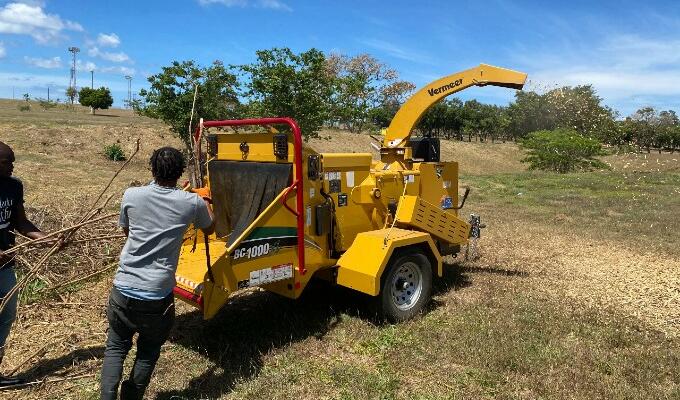
Story: Tackling coconut waste creatively in Barbados
Tackling coconut waste creatively in Barbados
Central to the Barbados experience is a refreshing coconut water break to beat the heat. Popular with locals and tourists alike, the sweet, health-packed beverage is sold fresh by roadside vendors and establishments across the island.
While this is great for business and tourism, fresh coconut water has the downside of generating a high amount of waste. Coconut vendors often discard and improperly dispose of coconut shells. With the rise in demand for coconut products, this has become a challenge that authorities in Barbados are seeking to bring under control. It could pose a serious health and waste management problem to the island.
The ‘Alliances for Coconut Industry Development in the Caribbean’ project, implemented by the International Trade Centre (ITC) Alliances for Action programme, the Caribbean Agricultural Research & Development Institute (CARDI) and key Alliances for Action partners address this issue through sustainable entrepreneurship.
Coconut waste is actually an untapped resource and a source of energy that could be leveraged profitably in Barbados and across the Caribbean region. By using bioreactor technology – a way to treat or convert raw materials into a preferred product – coconut waste can be transformed into biogas and digestate.
This helps both minimize organic waste and offer green growth for enterprises in Barbados. The project, drawing on a partnership with CARDI, the University of the West Indies and the National Conservation Commission of Barbados, is exploring applying bioreactor technology to improve the coconut industry in Barbados.
The National Conservation Commission has purchased a shredder that can grind the coconut husks as efficiently as possible. It is expected to commission the bioreactor by 30 June 2021 to produce digestate to benefit the agricultural sector at large, and the lead farmers and other project stakeholders in particular.
The mulch and digestate will be used as inputs for project activities such as growth trials for coconut nurseries and other crops. The biogas will go towards lowering utility and fuel bills for farmers and enterprises.
Leveraging bioreactor technology to tackle coconut waste will benefit Barbados and its coconut industry immensely. If it is successful, it will also serve as a model for coconut vendors and processors to increase profits.
ITC’s Alliances for Action is replicating and scaling up this model across other Caribbean states, with support from CARDI, regional partners and the European Union, The Organization of African, Caribbean and Pacific States and CARIFORUM, who are funding the project.




